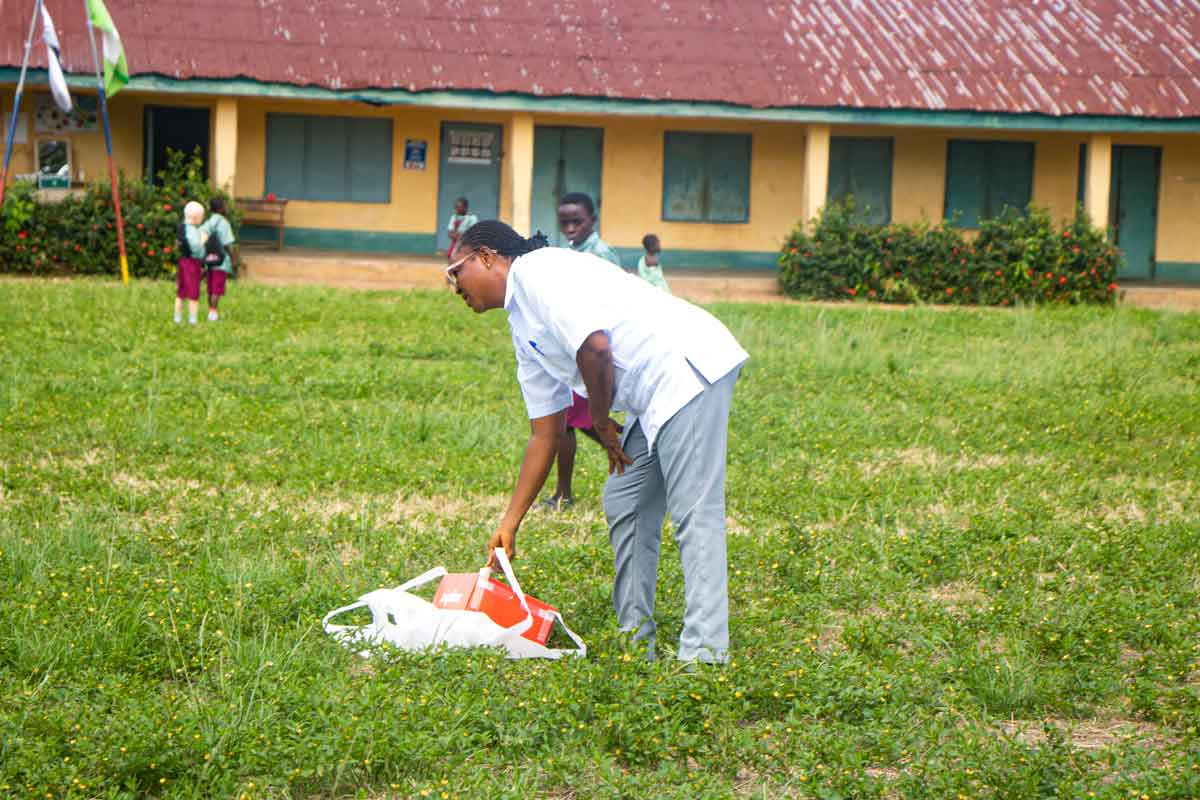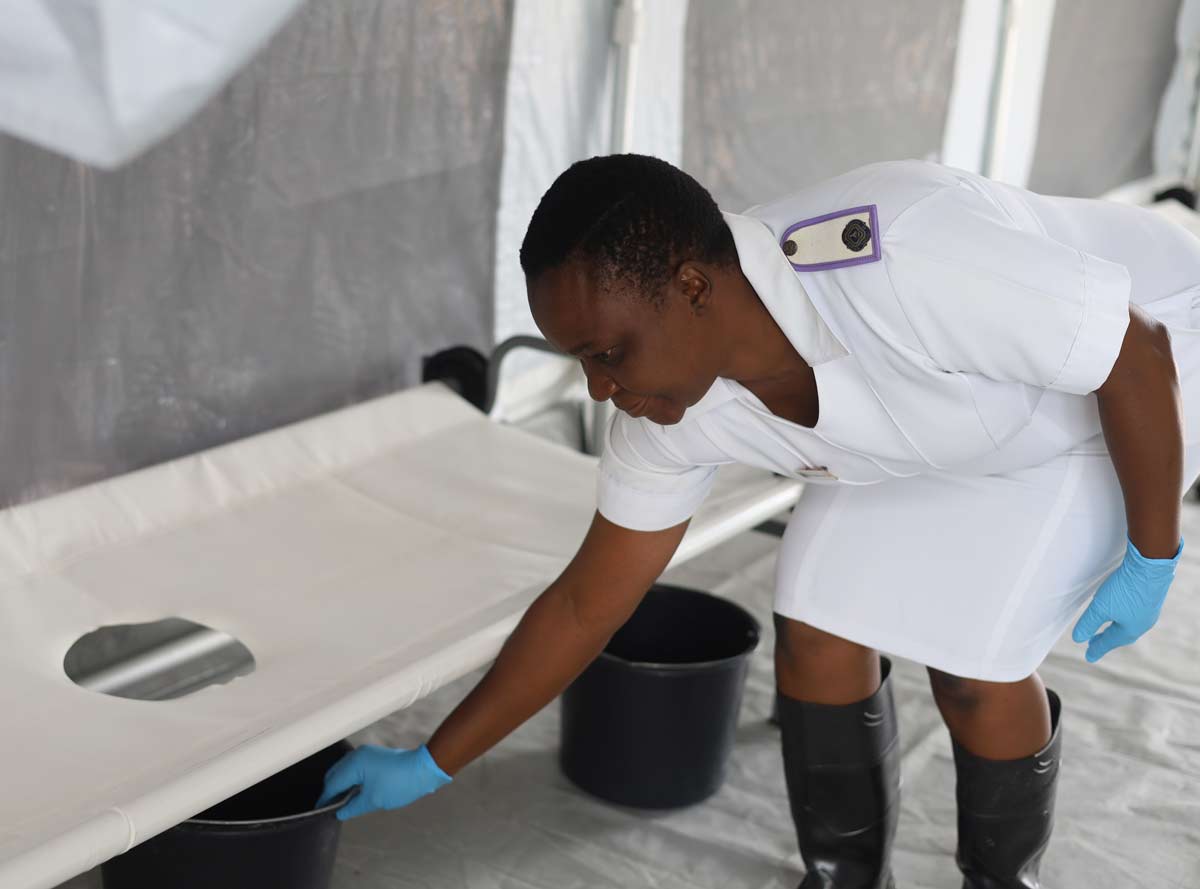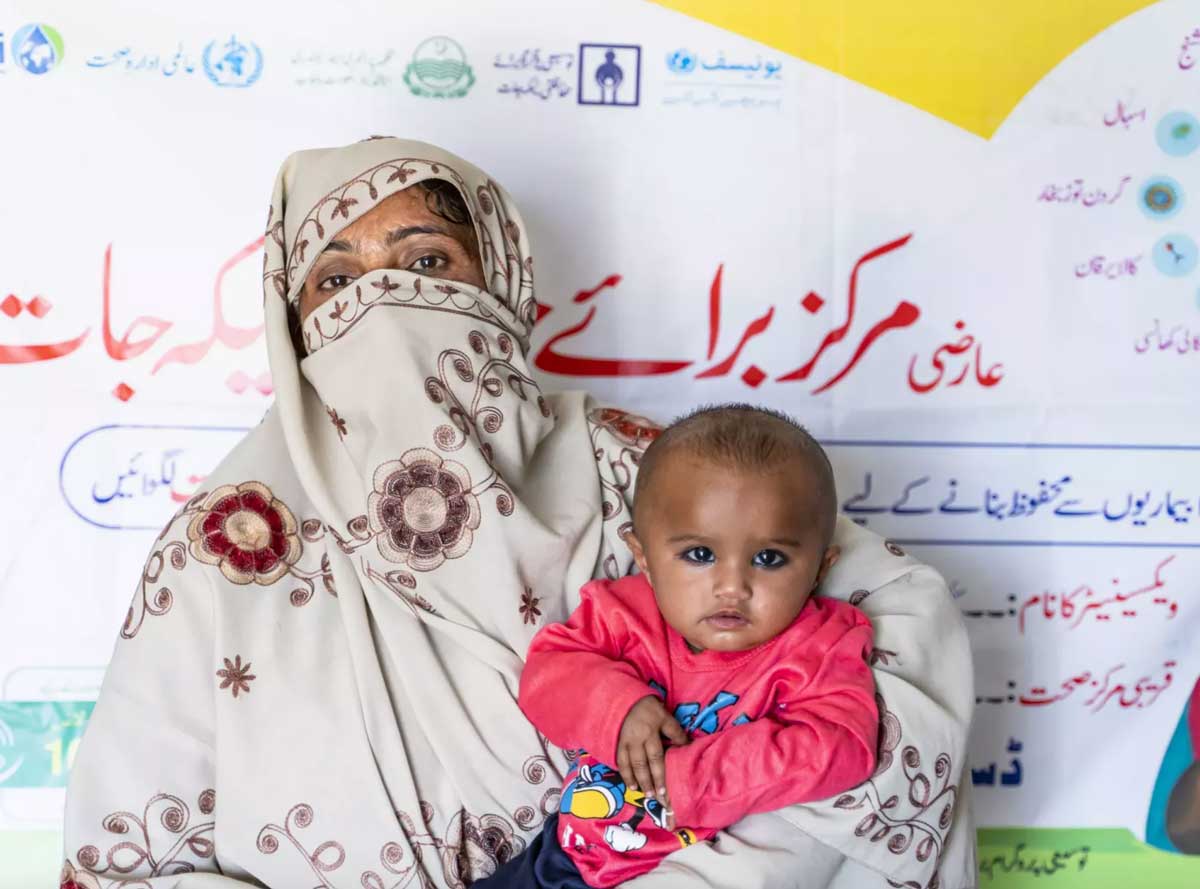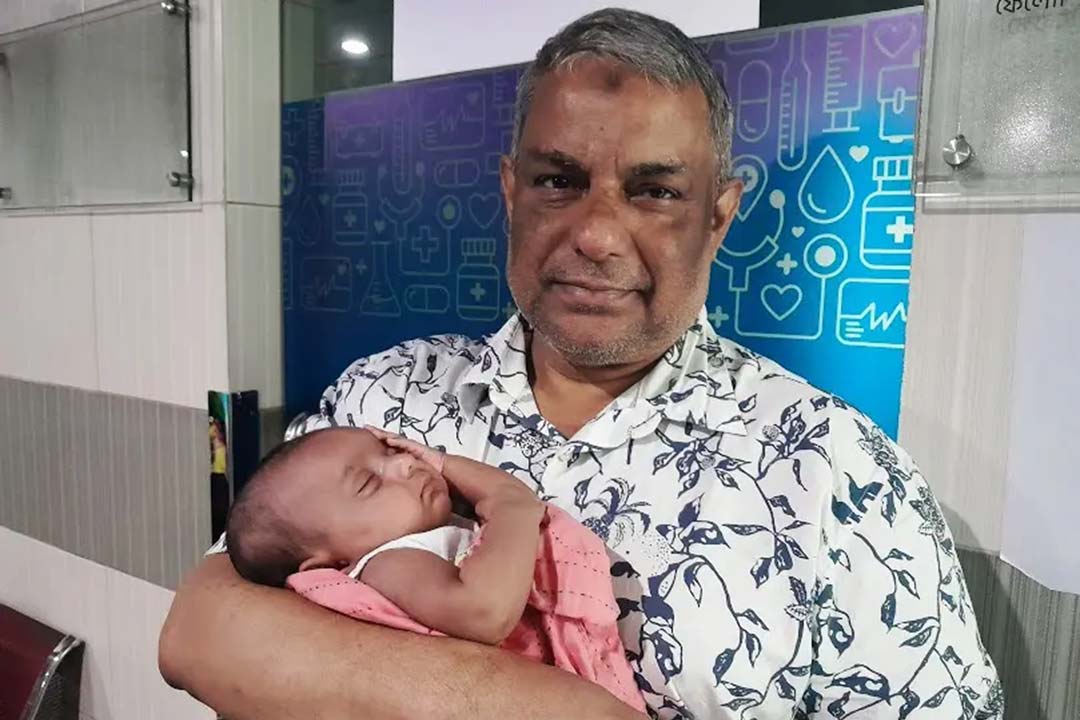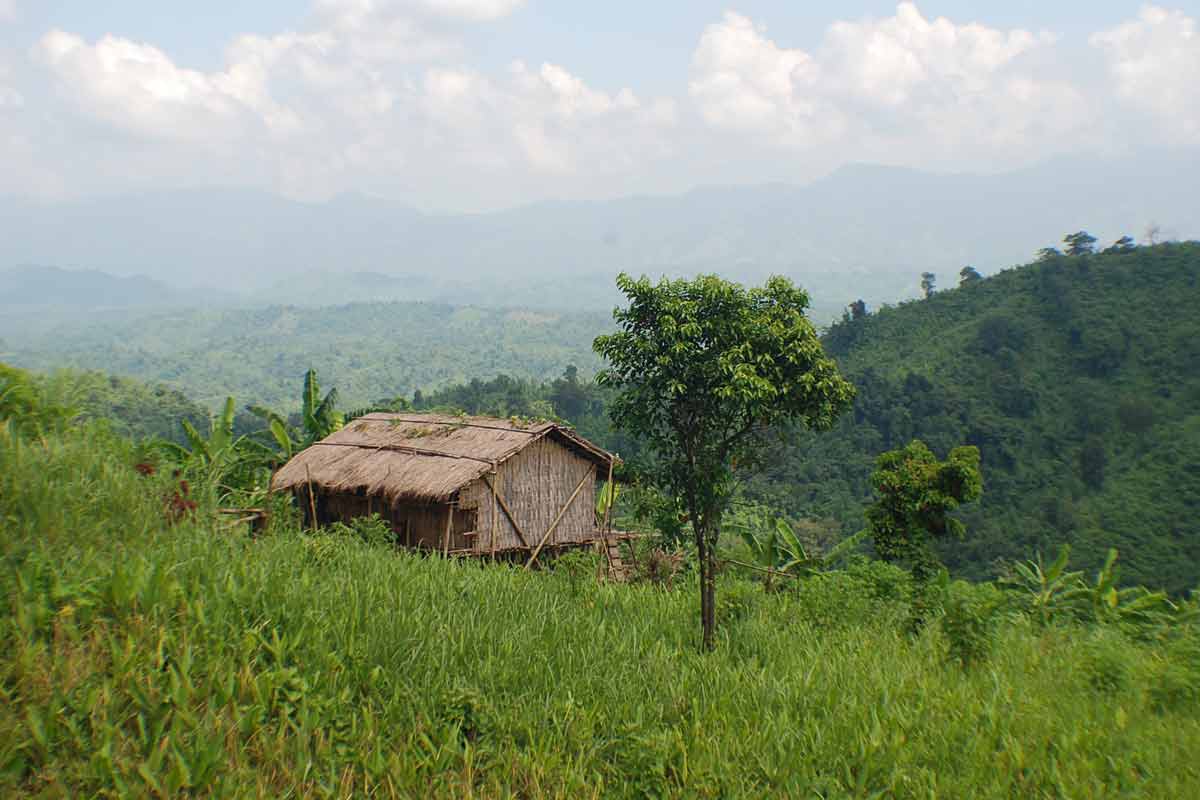Marooned by flash floods, children in eastern Bangladesh kept safe by vaccines
Bangladesh is facing the sharp end of the climate crisis, but a robust immunisation system is doing a great deal to blunt the force of post-flooding infection.
- 19 November 2024
- 4 min read
- by Mohammad Al Amin
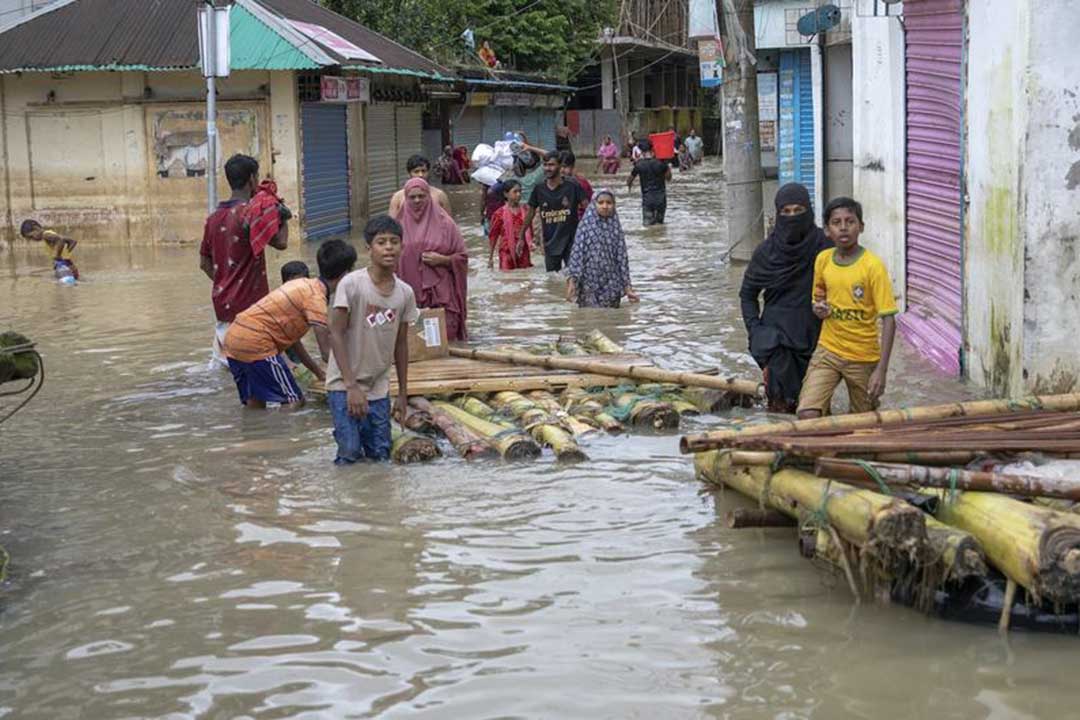
Bangladesh, often described as the frontline of the climate crisis, is inundated annually – and this year has been no exception.
Waves of flooding drowned large portions of the country in an extreme monsoon between June and September, with the eastern and south-eastern part of the country recording its worst deluges in 34 years. Some 1.2 million families in the region were trapped for weeks in the flood waters, at heightened risk of a second-order catastrophe: infectious disease.
Even the most robust health system can be knocked off-track by natural disaster.
But the braced-for major outbreaks didn't materialise. "Usually, pneumonia and measles outbreak take place in the flood-hit areas," immunisation expert Dr Tajul Islam A Bari told VaccinesWork. "This year, such thing didn't happen, as vaccines protected them from diseases."
Safety net
When floods engulfed Lakshmipur Sadar Upazila in Chittagong district in August, Sharmin, a stay-at-home mother from Gopinathpur village, worried for her 12-month-old son Abdullah Al Tahsin.
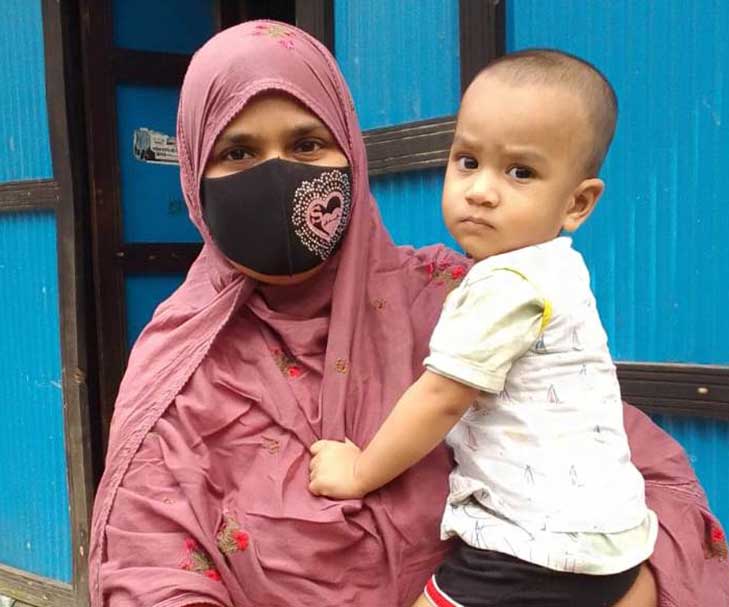
Credit: Mohammad Al Amin.
"We remained marooned for around two months, due to the floods in our area," Sharmin said. "However, finally it is our relief that my child didn't suffer any disease during the flood."
That is statistically likely to be down to more than good luck. According to the World Health Organization/UNICEF immunisation data for 2023, Bangladesh's coverage with the third dose of the basic diphtheria, tetanus and pertussis containing vaccine – a marker for immunisation coverage in general – stands at an impressive 98%. Ninety-seven percent of kids of Abdullah Al Tahsin's age have received their first shot of measles vaccine, and by 15 months of age, 99% of children are up-to-date on all three shots of pneumonia-blocking pneumococcal conjugate vaccine (PCV).
Have you read?
Dr Bari is not alone in crediting those high immunisation rates with limiting the grip of infectious disease amid the most recent wave of climate-linked catastrophe.
Though the Directorate General of Health Services (DGHS) recorded tens of thousands of cases of diarrhoea and skin disease reported during this year's flood season, along with nearly 5,000 respiratory infections, and although 127 people died countrywide from causes including diarrhoeal illness, snakebite, lightning strikes and drowning, health workers and policymakers seem to converge at a consensus that it might have been much worse.
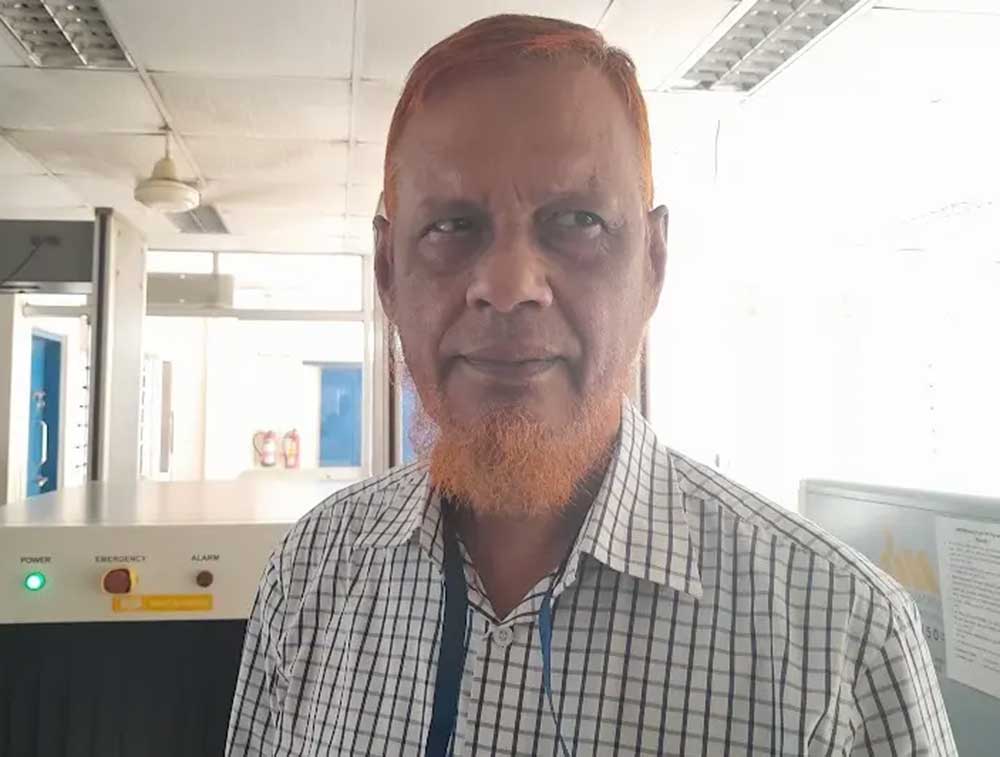
Credit: Mohammad Al Amin
"Though usually children are affected by different outbreaks of diseases including pneumonia and measles in flood-hit areas, but such thing didn't happen in my district," said Dr Ahammed Kabir, Civil Surgeon of Lakshmipur district. Cases of flood-linked diseases – notably diarrhoea – did crop up, he confirmed, but nothing "epidemic-like" materialised. "One of the major reasons behind the protection of children is routine immunisation."
"Though usually children are affected by different outbreaks of diseases including pneumonia and measles in flood-hit areas, such thing didn't happen in my district," said Dr Ahammed Kabir, Civil Surgeon of Lakshmipur district. "One of the major reasons behind the protection of children is routine immunisation."
"Among the different reasons, routine immunisation definitely has played vital role in protecting the flood-affected children from diseases like pneumonia and measles," echoed Sheikh Daud Adnan, Line Director (CDC) of Directorate General of Health Services. "Our health staffs also provided medical services during the flood that also gives protection."
Disruption – and repair
But even the most robust health system can be knocked off-track by natural disaster.
Describing the floods confidently as a climate change impact, Mohammad Shamsuddoh, a climate expert and the chief executive at the Center for Participatory Research and Development (CPRD) explained that the intensity and duration of rainfall in Bangladesh's monsoons has increased in recent years.
"This year Bangladesh faced the sudden worst flood due to heavy rain in short period in both upstream and downstream, while Bangladesh is the most downstream country in the Ganges-Brahmaputra-Meghna basins," he told VaccinesWork.
In Bangladesh, in other words, natural disasters are tending towards normal – meaning the health care system needs to have a practised rebound plan in place.
Modhumita Paul, Family Welfare Visitor at South Hamchhadi Union Health and Family Planning Centre in Laksmipur Sadar Upazila, said it was difficult to provide health services during the flood. "Those who can come to the centre we tried to give them service, but many from remote areas couldn't come."
Dr Ahammed Kabir said the Lakshmipur district health system worked to provide essential services, including immunisation, to the district's displaced population at shelters. "We have also provided health services by setting up temporary health camps at different shelter houses in the district," he said. "Diarrhoea cases were reported during that time. However, we tackled the situation with our extra efforts," he added.
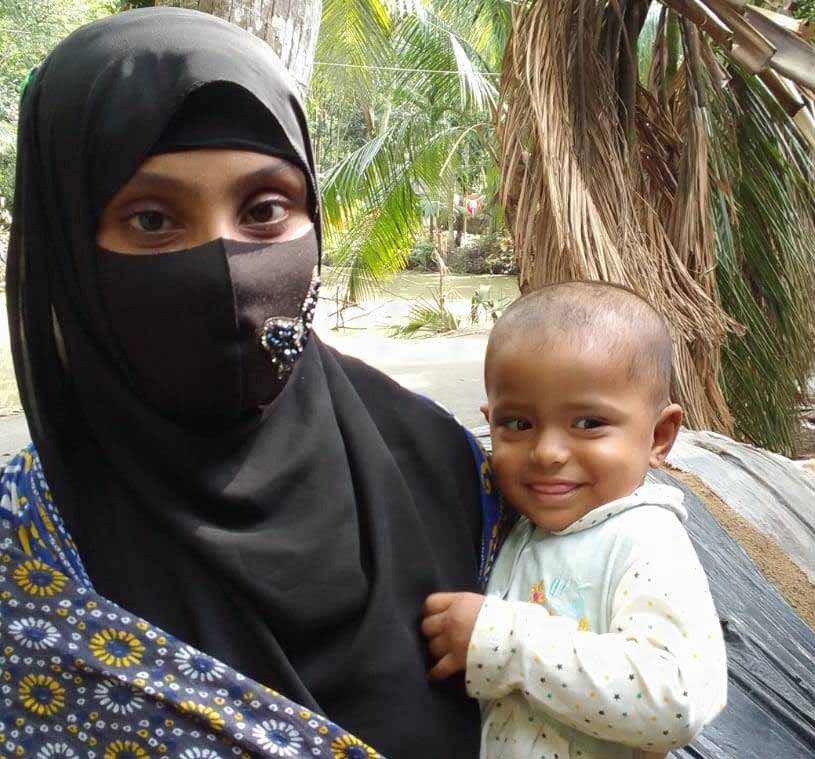
Credit: Mohammad Al Amin.
Those included follow-up vaccination when the waters ebbed. Ankhi, wife of Morshed Alam, confirmed that her baby daughter Umme Zainab had missed her final routine childhood vaccine due to the floods, but was later caught up at a nearby vaccine centre.
Dr Abul Fazal Md. Shahabuddin Khan, Program Manager (EPI) said efforts were made to patch holes in the vaccine safety net across the country. "The children who were dropped from their scheduled dose of certain EPI listed vaccine due to flood, we provided them vaccine later through special coverage in holidays."
More from Mohammad Al Amin
Recommended for you



